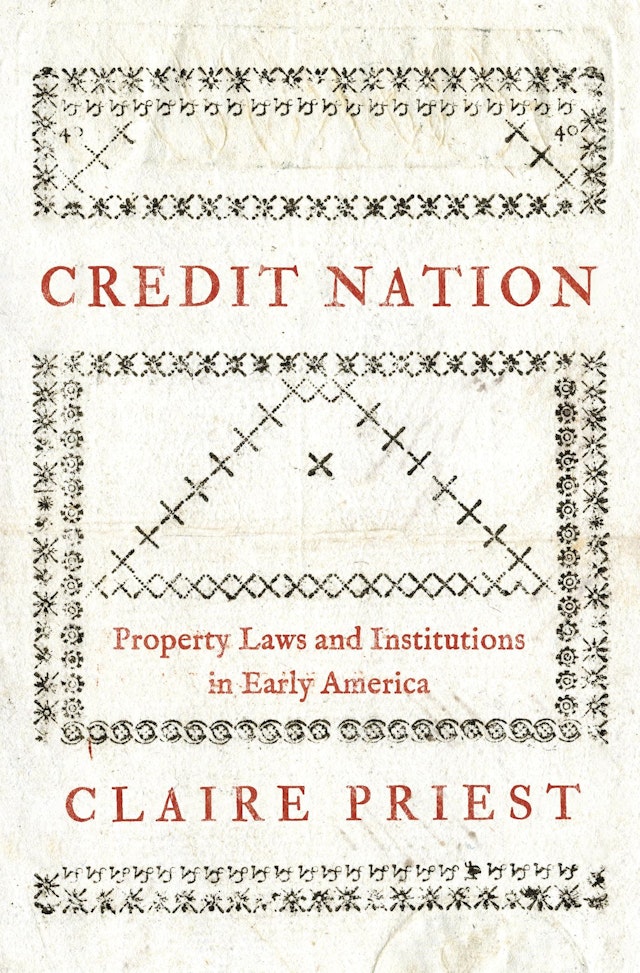Princeton University Press is
publishing a new book on property laws and institutions in Early America.
ABOUT THE BOOK
Even before the United States
became a country, laws prioritizing access to credit set colonial America apart
from the rest of the world. Credit Nation examines how the drive to expand
credit shaped property laws and legal institutions in the colonial and founding
eras of the republic.
In this major new history of
early America, Claire Priest describes how the British Parliament departed from
the customary ways that English law protected land and inheritance, enacting
laws for the colonies that privileged creditors by defining land and slaves as
commodities available to satisfy debts. Colonial governments, in turn, created
local legal institutions that enabled people to further leverage their assets
to obtain credit. Priest shows how loans backed with slaves as property fueled
slavery from the colonial era through the Civil War, and that increased access
to credit was key to the explosive growth of capitalism in nineteenth-century
America.
Credit Nation presents a new
vision of American economic history, one where credit markets and liquidity
were prioritized from the outset, where property rights and slaves became
commodities for creditors’ claims, and where legal institutions played a
critical role in the Stamp Act crisis and other political episodes of the
founding period.
ABOUT THE AUTHOR
Claire Priest is the Simeon E.
Baldwin Professor of Law at Yale Law School. Twitter @priest_claire
More info here


No comments:
Post a Comment
Note: Only a member of this blog may post a comment.